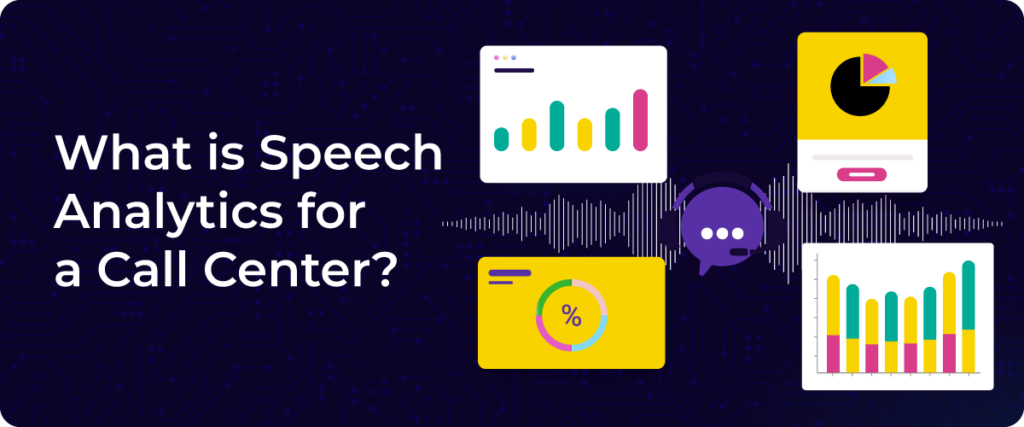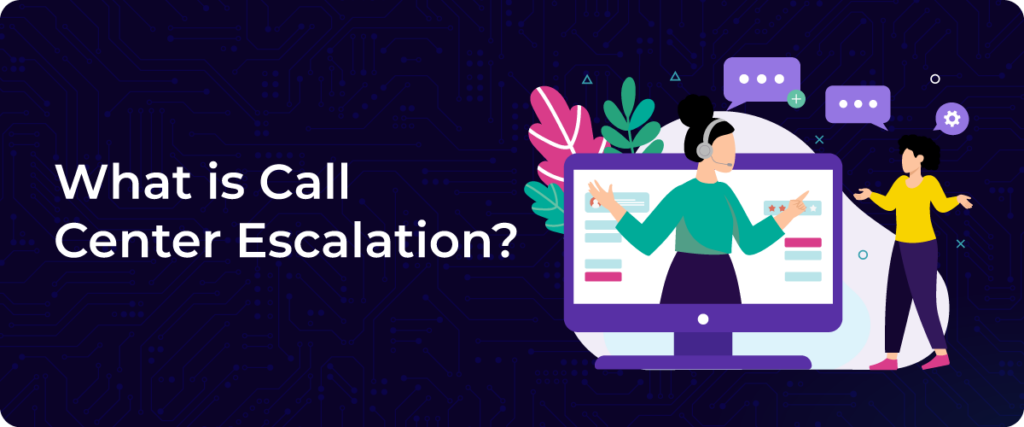Have you ever answered the phone only to hear a salesperson on the other end or received a call reminding you of an upcoming appointment? If so, you have experienced an outbound call. For businesses, outbound calling is more than just a random dial, it is a strategic communication tool essential for growth, customer service and market research.
What is Outbound Call?
Outbound call refers to businesses proactively reaching out to customers, prospects, or partners for various purposes. These calls are often used for sales, customer engagement, and service-related interactions.
Unlike passive communication methods, outbound calling allows businesses to take charge of conversations and drive meaningful outcomes.
Common use cases of Outbound Call
1. Sales & Lead Generation
Businesses connect with potential customers to introduce products, qualify leads, and close deals.
2. Customer Follow-Ups
A quick check-in after a purchase, service request, or previous conversation helps maintain engagement.
3. Appointment Reminders & Confirmations
Healthcare providers, salons, and service-based businesses use outbound calls to reduce no-shows.
4. Surveys & Feedback Collection
Companies conduct market research, product satisfaction surveys, and customer experience assessments.
5. Debt Collection & Renewals
Banks, telecom providers, and subscription services use outbound calls to remind customers about due payments or contract renewals.
Outbound Call vs Inbound Call
Understanding outbound call meaning becomes clearer when compared to inbound calls. While both are essential for business communication, they serve different purposes and require distinct strategies.
Inbound Calls
Inbound calls occur when customers reach out to a business. These calls are typically for customer support, inquiries, or service requests. The key characteristics include:
- Customer-Initiated: The caller reaches out for help or information.
- Service-Oriented: Focused on solving issues, answering questions, or assisting with transactions.
- Reactive Approach: Businesses respond to customer needs as they arise.
Outbound Calls
Outbound calls, on the other hand, are initiated by businesses to engage with customers proactively. The key characteristics include:
- Business-Initiated: Calls are made to prospects or existing customers.
- Sales & Engagement Focused: Used for lead generation, follow-ups, and promotions.
- Proactive Approach: Businesses take the first step in communication.
Benefits of Outbound Calling
Outbound calling remains a vital strategy for business growth, with 82% of buyers accepting meetings when salespeople reach out proactively, provided the outreach is relevant and valuable.
1. Proactive Customer Engagement
Instead of waiting for customers to reach out, outbound calls help businesses initiate conversations. Whether it’s a service reminder, an exclusive offer, or a simple follow-up, proactive engagement builds stronger relationships and keeps customers interested.
2. Lead Generation & Sales Opportunities
Outbound calling is one of the most effective ways to generate leads and close deals. Sales teams can reach potential customers, qualify leads, and pitch products or services directly. A well-executed call can turn cold leads into loyal customers.
3. Market Research & Customer Insights
Companies use outbound calls for surveys, feedback collection, and competitor analysis. Direct interactions with customers provide valuable insights that help businesses refine their strategies, improve products, and stay ahead of market trends.
4. Customer Retention Through Follow-Ups
A simple follow-up call after a purchase or service interaction can increase customer satisfaction and loyalty. Outbound calls help businesses address concerns, upsell relevant products, and maintain long-term relationships with their customers.
Outbound Calling Process
A successful outbound calling campaign requires strategy, preparation, and continuous optimization. Here’s how businesses can structure the process for maximum effectiveness:
1. Plan Your Campaign
Define clear goals, identify your target audience, and select the right tools, such as auto-dialers and CRMs.
2. Prepare Your Team
Develop a flexible script and train agents to use customer data for a personalized approach.
3. Execute with Precision
Make calls at optimal times, maintain a natural tone, and use a structured follow-up plan.
4. Measure & Optimize
Leverage call analytics to track key metrics to assess success and analyze results to refine your scripts and strategies.
How to Choose the Right Outbound Calling Software
Choosing the right outbound calling solution is key to a successful sales and service team. Don’t get lost in a sea of features instead focus on these 3 critical areas to find the perfect fit.
1. Go Beyond the Basics: Every platform has auto-dialers and CRM integration. Look for advanced features that make a real difference, like smart routing, call recording, and detailed real-time analytics.
2. Prioritize AI and Intelligence: The future of outbound calling is AI outbound calling. Choose a solution that uses AI not just to automate, but to optimize. This is where software like Convozen AI excels.
- Tools like Convozen AI offer automated quality assurance to analyze 100% of calls.
- It provides a real-time AI assistant for agents with scripts and a summary of conversations.
- Its intelligent lead scoring ensures your team only talks to the most qualified leads.
3. Focus on Ease of Use and Support: A powerful tool is useless if no one can figure it out. Pick a platform with an intuitive interface and reliable customer support to ensure a smooth transition and happy team.
Outbound Calling Best Practices
A well-executed outbound calling strategy can boost engagement, generate leads, and build customer relationships. Here are some best practices to maximize success:
1. Know Your Audience
Before making calls, research your prospects. Understanding their needs, pain points, and preferences allows you to personalize your approach and increase engagement.
2. Use a Conversational Yet Structured Script
A good script acts as a guide, not a rigid set of lines. Keep it natural, focus on value, and be prepared to handle objections with confidence. The best calls feel like genuine conversations, not robotic pitches.
3. Optimize Call Timing
Calling at the right time increases the chances of getting a response. Studies suggest that late mornings and early afternoons on weekdays yield higher pick-up rates. Avoid calling too early or too late in the day.
4. Focus on Building Rapport
Instead of jumping straight into a pitch, start with a friendly introduction. Use the prospect’s name, express interest in their needs, and engage them in conversation before offering a solution.
5. Track Performance & Improve Continuously
Monitor call metrics like response rates, conversion rates, and call duration. Analyzing data helps refine scripts, improve strategies, and enhance overall effectiveness
AI Outbound Calling- Automation in Outbound calls
AI outbound calling uses technology like conversational AI to automate outbound phone calls. An AI outbound calling agent can engage in human-like conversations and perform tasks like lead qualification, appointment setting, and customer service.
Key Difference from Old Dialers
Traditional auto-dialers simply connect an agent to a live person. AI outbound calling systems can handle the entire conversation from start to finish without a human agent, only transferring a call when necessary.
Benefits of AI Outbound Calling
- Scale & Efficiency: Automate thousands of calls simultaneously, reaching more prospects in less time.
- Cost Reduction: Free up human agents by using an AI voicebot for high-volume, repetitive tasks.
- Consistency: Every call is executed perfectly according to a data-driven script, ensuring a consistent message.
- Personalization: An AI virtual assistant for outbound calling can pull real-time data from your CRM to have a highly personalized and relevant conversation with each person.
AI outbound calling allows businesses to dramatically increase their reach and generate more qualified leads, while ensuring a consistent, high-quality customer experience.
AI Outbound Calling Software- Convozen AI
Convozen AI offers advanced tools for call center management, ensuring efficiency, compliance, and better customer engagement for all outbound calls.
1. AI-Powered Call Insights
Convozen AI analyzes outbound calls in real-time, offering actionable insights into conversation quality, customer sentiment, and agent performance. This helps businesses refine their scripts and improve conversion rates.
2. Smart Call Monitoring & Compliance
Regulatory compliance is crucial in outbound calling. Convozen AI’s AI-driven monitoring ensures agents adhere to guidelines, reducing risks and enhancing trust in customer interactions.
Convozen AI is also GDPR compliant, SOC 2 Type ll compliant, HIPAA compliant, CCPA compliant, and ISO 27001 Compliant.
3. Performance Analytics & Coaching
Through detailed analytics and AI-driven coaching, Convozen AI helps sales teams identify what works and what doesn’t. By tracking key metrics like talk-to-listen ratio, objections handled, and successful pitches, businesses can optimize their outreach strategy.
4. Automated Call Summaries
Instead of manually logging call details, Convozen AI generates AI-powered call summaries, saving time and allowing agents to focus on meaningful conversations.
5. Data-Driven Personalization
By analyzing past interactions, Convozen AI enables personalized outbound calls, improving customer engagement and increasing the likelihood of positive responses.
Summary
Outbound calling remains a powerful strategy for businesses to engage customers, generate leads, and build relationships. When done right—with proper planning, effective scripts, and performance tracking, it drives real results.
Tools like Convozen AI enhance outbound calling by providing AI-driven insights, automation, and compliance monitoring, making every call more strategic and impactful. By optimizing outbound calls, businesses can boost conversions, improve customer experiences, and achieve long-term growth.
Frequently Asked Questions
Outbound calling refers to businesses proactively reaching out to customers or prospects for sales, follow-ups, surveys, or support. It helps in lead generation, customer engagement, and market research.
Outbound calls drive sales, improve customer relationships, and gather valuable insights. By proactively engaging prospects and existing customers, businesses increase conversions, enhance retention, and strengthen brand loyalty.
A successful outbound call involves the right timing, a personalized approach, an engaging script, and active listening. Using AI tools like Convozen AI enhances effectiveness by providing insights and optimizing performance.
Yes, AI can make calls. Intelligent voicebots can conduct entire conversations, from qualifying leads to scheduling appointments, without human intervention.
An inbound call is initiated by a customer to your business, typically for support. An outbound call is initiated by your business to a customer for sales, surveys, or follow-ups.
It is a platform that automates and manages outgoing calls. Modern software, like Convozen AI, uses advanced AI to make the process more efficient and data-driven


